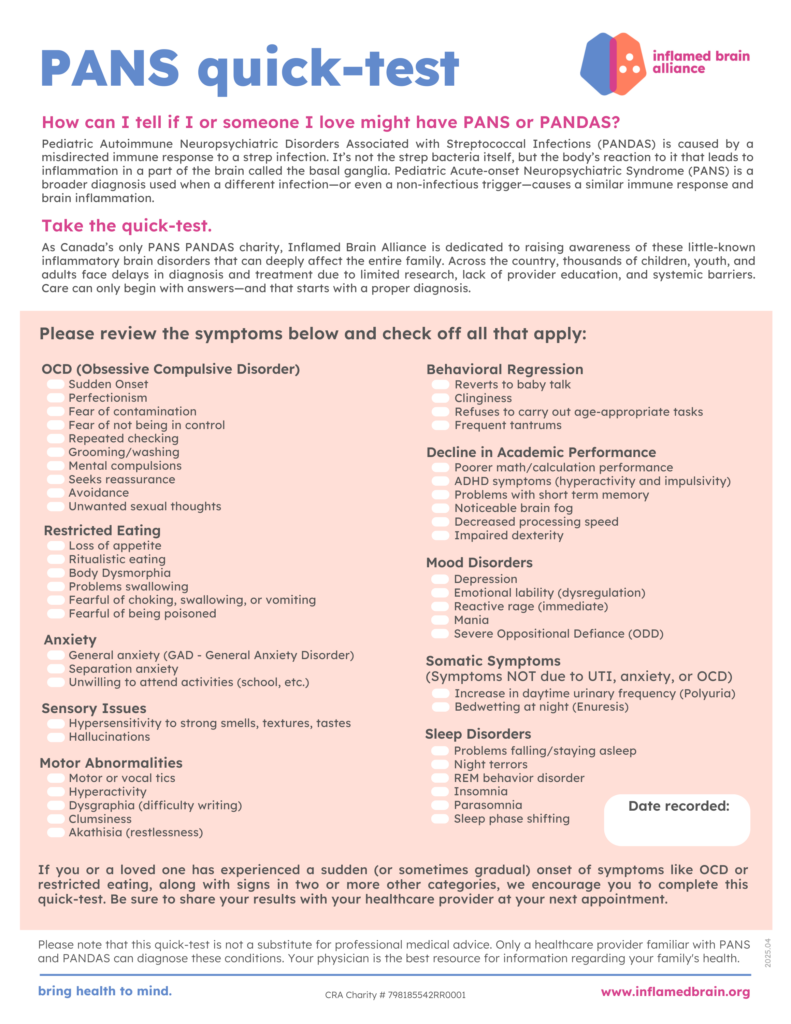PANS PANDAS are overlooked medical conditions.
Take the PANS quick-test to find out more.
How do I know if I or someone I love could have PANS or PANDAS?
In both PANS (Pediatric Acute-onset Neuropsychiatric Syndrome) and PANDAS (Pediatric Autoimmune Neuropsychiatric Disorders Associated with Streptococcal Infections), the primary symptoms of OCD and/or severe eating restrictions are accompanied by additional secondary symptoms which may include tics, changes in normal behaviours, personality and mood, decreased cognitive ability and functioning at school, enhanced sensory sensitivities, anxiety and/or sleep and urinary disturbances. The symptoms are usually considered to have high relapse potential, however they can persist and become chronic.
To date there hasn’t been a large epidemiological population study on the prevalence of PANS or PANDAS, so we don’t know how common they are. However, if clinicians were to recognize the connection between whole-body health and mental health, PANS PANDAS would likely be far more commonly diagnosed.
If you or your child has OCD, tics, or an eating disorder, you may want to further investigate PANS PANDAS. PANS PANDAS are overlooked medical conditions that can lead to these changes. Unfortunately, these neuroimmune conditions are often not recognized, and it can often take years and multiple doctors visits for children and adults to get a proper diagnosis. With proper clinical diagnosis, patients can receive treatments that not only help them manage their symptoms, but heal.
Who is at risk of PANS or PANDAS? Take the PANS quick-test.
Patients who have a family history of OCD, autoimmune disease, rheumatic fever, or chorea are more likely to have PANS. The patient’s history regarding their exposure to streptococcal infections (such as strep throat, peri-anal strep, or scarlet fever) and other infectious or noninfectious triggers should be considered if they are also exhibiting a sudden (sometimes gradual) onset of symptoms.
According to current PANS PANDAS data, there is no age requirement for a PANS diagnosis, but symptoms typically begin during the grade-school years. Patients can also have their initial symptom onset during adolescence or later in life.
PANDAS requires symptom onset prior to puberty based on studies that indicated that 98% of 12-year-olds have immunity against strep infections and therefore could not develop a post-streptococcal condition such as PANDAS. However, this would not exclude patients from receiving a PANDAS diagnosis, if all other criteria were met following puberty.
If you or someone you love is experiencing unexplainable symptoms that could be associated with PANS PANDAS, please take the PANS quick-test to find out more.

